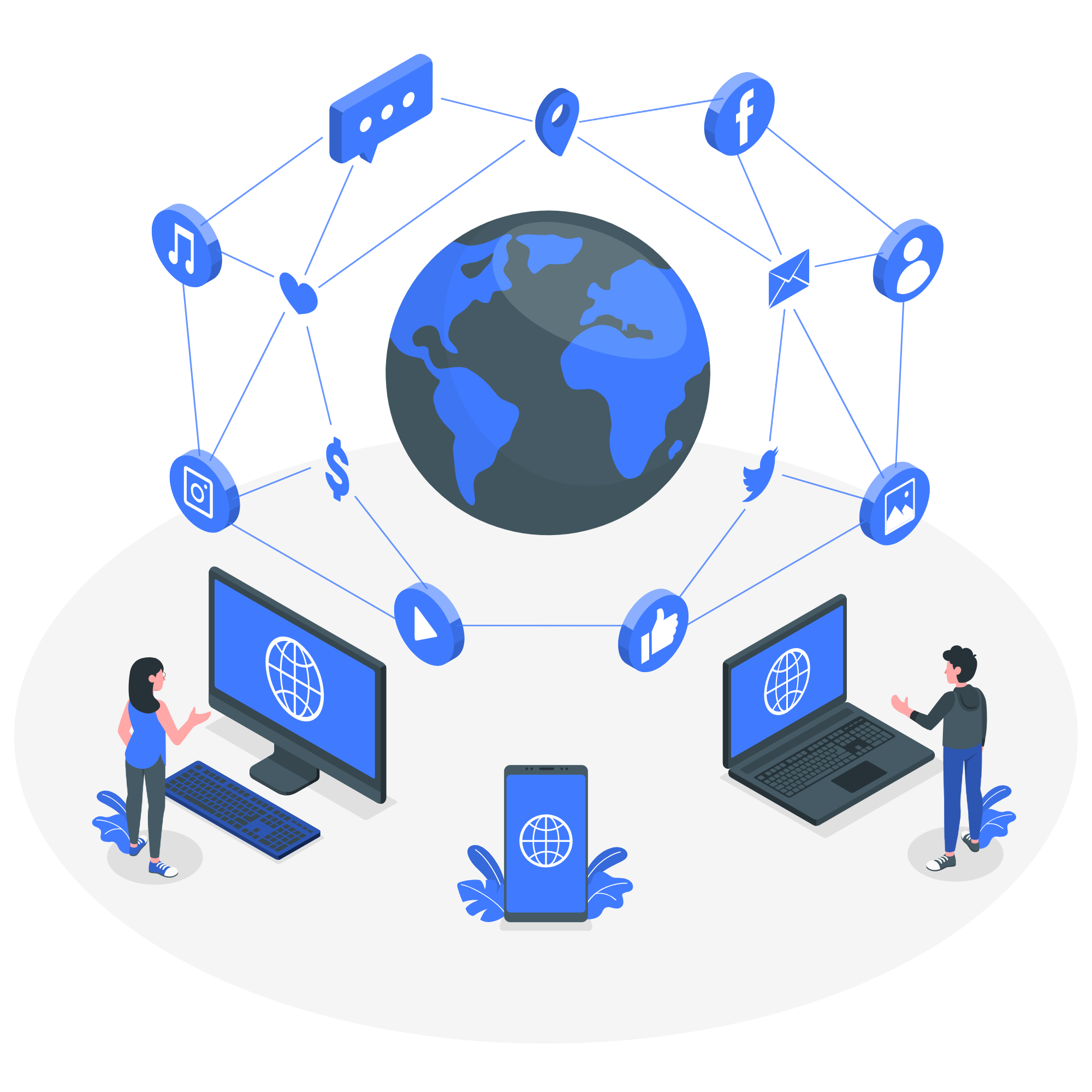Omnichannel strategy, definition and benefits
Dec 14, 2024 -
Omnichannel strategy, definition and benefits
Omnichannel, a new term in business and marketing world, especially in the current digital marketing revolution.
What is Omnichannel?
Omnichannel, what is the literal meaning of “Omni”?
Omni is a Latin prefix which means “all” or “every”, and it is often used in technical terms.
Omnichannel marketing strategy:
Today, businesses presence isn’t limited to their physical stores or offices but extends to all digital channels where your customers are actually present (be where your customers are).
Even if you interact with your customers by website, on social media accounts, in emails, mobile apps, and other channels, you should appear and interact with your customers following the same strategy.
Omnichannel marketing is a strategy that provides a seamless and consistent customer experience by integrating multiple channels to provide a unified high-quality brand service no matter where or when.
Benefits of using Omnichannel strategy:
Omnichannel approach provides a several key advantages in marketing for both businesses and customers:
-
Consistent customer experience: when businesses ensure a seamless service for customers across all their channels, this will improve their experience resulting in a satisfied customers who are more likely to repeat dealing with you. So, as a business, you will gain a loyal customer, and as a customer you will get a better service.
-
Enhanced Brand identity: your brand is your identity, so customers experience feedback says a lot about your brand. Customers experience start from the first interaction and response with their inquiries until they decide to deal. So, the more they feel satisfied, the more your brand becomes trusted and recommended.
-
Improved business profits: reaching your customers across multiple channels will increases the opportunity to make more deals. when customers have a seamless and easy transition between different channels without losing or repeating information, they will more likely tend to complete transactions.
-
Instant problem resolution: as customers, time is matter, they don’t want to send an inquiry and receive a delayed or inaccurate responses. With omnichannel, customers inquiries and interactions can be tracked over all channels, ensuring fast and accurate resolutions.
-
Data collection and insights: data collection is an important factor in omnichannel strategy. The collected data helps in understanding customer behaviour, enabling businesses to meet their customer needs better.
Omnichannel strategy provides solutions not limited only for sales, but it extends to use for surveys or in technical support for clients, or any other application based essentially on collecting data through multiple channels.
Omnichannel vs Multi-channel:
The opposite term of omnichannel is multi-channel. Multi-channel is a strategy that businesses use to connect with customers, but these channels act separately without integration.
Assume as a customer you find a product through Instagram and go to the store website to learn more details about this product, then you received an email for special discount if you order within 24 hours, and then you send an inquiry by WhatsApp asking if the discount is only applied for online orders.
You are going through multiple channels to help you in your purchasing process, each channel offers you a piece of puzzle, and it is your task to complete the full picture.
While in omnichannel you get a seamless and consistent purchasing experience through all channels.
here we will summarize the main differences between omnichannel and multichannel:
| Omnichannel | Multi-channel |
|---|---|
| Multiple integrated channels | Multiple independent channels |
| Seamless, consistent customer experience | Customer experience may lack consistency |
| Data collection creates a Holistic view of customer interactions. | Fragmented customer data from different channels |
How to create an effective omnichannel strategy:
To create an effective omnichannel strategy, you should consider the following points:
First: Understand your customers/clients:
-
It is important to understand the specific characteristics of the people who are mostly care about your product or service like their age, gender, interests, purchasing behaviour, and others.
-
Identifying where your expected clients spend their time, and if they are mostly shop online, in stores, or both. Also, you should know which channels your target clients most often use.
-
Trace customer journey, which refers to the journey a customer takes from finding your brand to making a deal. Understanding customer interactions during this journey is the key to improve their experience.
Second: Use the appropriate technology:
Using the right technologies and tools. for example, customer relationship management systems CRM have a crucial role in implementing an effective omnichannel strategy:
-
With CRM systems like Alaaqat for example, all communication channels (whatsapp, facebook and Instagram) will be integrated into one unified platform.
-
This integration will help in service consistency which provides a seamless experience across all touchpoints.
-
CRM systems support collecting and analysis of customers data for better insights and personalized services.
There are other technologies and tools can be used in omnichannel implementation like chatbots, automation tools, reporting and analytics tools, and others.
Third: Test and improve:
Regular testing and evaluation will support in addressing your customer needs and expectations. Try to apply your strategy step by step starting with small plan, then listen to your customers, respond to their needs, and continually optimize your strategy.
